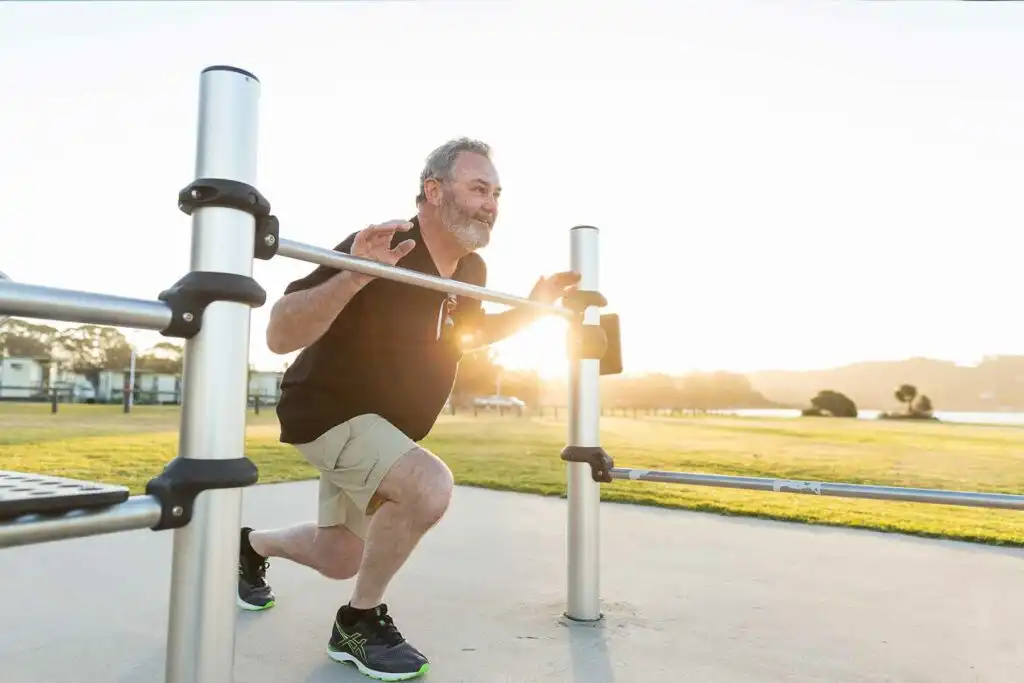Menu
Recovering from a major injury, illness, or surgery can be tough and take a long time. Often, it means spending a lot of time in bed and not being as active. This lack of activity can lead to a decrease in how well your body works and overall physical weakening or deconditioning.
The impact of deconditioning
Deconditioning refers to the changes in the body that can occur during a period of inactivity. The changes happen in the heart, lungs, and muscles resulting in:
The impact of deconditioning can vary in severity and may impede daily activities like walking, running errands, or leaving the house. In more severe cases, it can significantly hinder basic self-care tasks such as using the bathroom, showering, or dressing.
Thankfully, reconditioning rehabilitation offers the potential to mitigate or reverse these effects, enabling you to regain a level of fitness and function similar to what you previously enjoyed. This is accomplished through:
An expert multidisciplinary team, skilled in neurological, orthopaedic and musculoskeletal conditions.
A program that is tailored to your unique needs and goals.
A genuine partnership between you and your clinical team so you have choice and control.
A warm and friendly environment where you feel safe and cared for.
Access to your rehab as an inpatient or through day services.
Under the direction of a specialist rehabilitation doctor, your program can include:
Rehabilitation medicine focuses on helping people recover and regain their abilities after injuries, illnesses, or surgeries.
Prioritises exercises and mobility training to enhance strength and functionality.
Aims to enhance your ability to engage in daily activities
An tailored method to get bodies moving and assist in reaching personal and health-related objectives
Aquatic exercises, conducted in warm water, alleviate pain, enhance muscle strength, boost circulation, and refine overall functionality.
Aims at improving communication skills and refining swallowing and drinking capabilities.
Helps improve digestion and overseeing nutritional intake.
Aids in cognition, brain function, behaviour, emotions, personality, and human development.
Assessing & managing health issues, & providing therapeutic interventions & advice.
Centers on bolstering overall health and well-being through evidence-based, effective support.

The therapy was brilliant. The physiotherapists were so wonderful, patient and experienced. Their care, commitment, encouragement and knowledge have been central to my terrific results.
There are several funding options available to access our programs. These include:
Fees and charges are dependent upon your health fund and level of cover. Please check with your health fund if any additional charges apply.
Before you are admitted or before commencing your program, we will obtain approval from your insurer.
A broad range of health care and support services are available to meet the clinical needs of eligible veterans and eligible dependants.
If you do not have a funding stream, you can also choose to self-fund your program.
As a fully accredited NDIS provider, our NDIS Therapy Supports service provides NDIS participants with evidence-based allied health therapies to support, maintain and increase function and wellbeing. Click to find out more.
The first step is to obtain a referral from your specialist or GP. Medical professionals can access referral forms by clicking here.
Once we receive your referral, we will be in touch to organise a time to meet with you to discuss and review your needs and goals. We will also provide a fee estimate.
We will be in touch to organise your therapy so you can begin your rehab journey.
Click here for our Privacy Policy.
"*" indicates required fields
